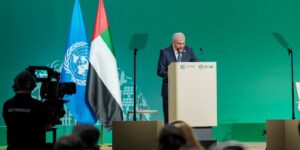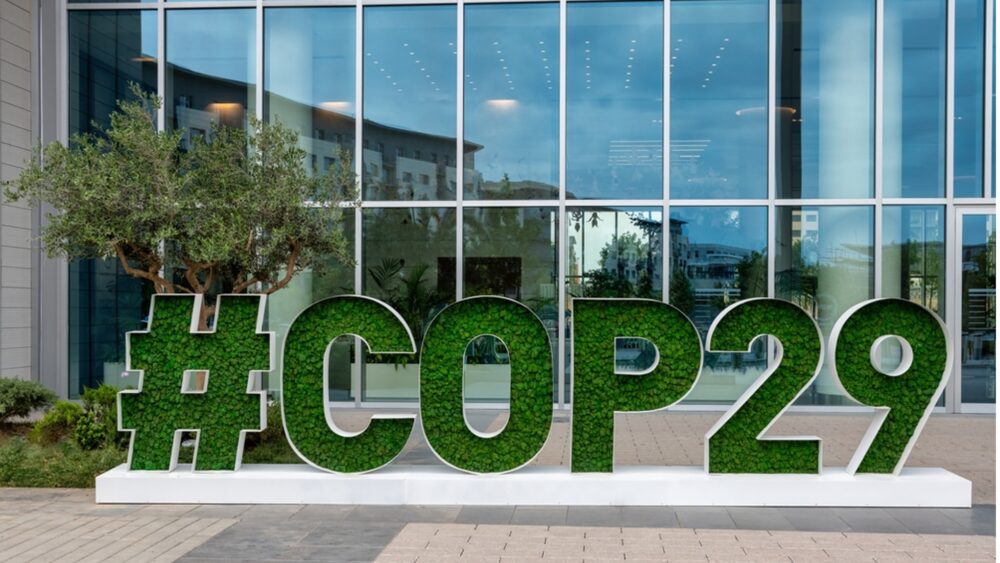In his article, Harry Istepanian discusses Iraq’s participation in COP29. The summit will bring together representatives from nearly 200 countries to address urgent climate change issues, particularly the need for increased climate finance to support developing nations. Iraq, which has suffered from decades of conflict, faces significant challenges from climate change, including rising temperatures and water scarcity, which complicate its recovery efforts. Despite Iraq’s high vulnerability to climate impacts, it has struggled to attract the necessary climate finance to address its environmental crises. With COP29 approaching, Iraq must prioritize overcoming one of the most significant barriers to increasing access to climate funds—enhancing transparency in climate finance management. Istepanian emphasizes the importance of transparency and accountability in climate finance management to help Iraq achieve its adaptation and mitigation goals effectively.
On November 11, Iraq will join nearly 200 countries in Baku, Azerbaijan, for COP29, a global summit spanning two weeks that brings together major stakeholders to tackle the urgent call to “enhance ambition and enable action” on climate change. A central theme at COP29 will be climate finance, a crucial tool for converting climate goals into concrete actions that cut emissions, enable adaptation, and address loss and damage. The summit aims to establish a New Collective Quantified Goal (NCQG) to secure ongoing, targeted support for developing nations beyond 2025.
Iraq, as a developing nation, has suffered from decades of wars and conflict, which have severely impacted its infrastructure, economy, and social fabric. The persistent instability has hindered progress in various sectors, including health, education, and environmental sustainability. The country has been facing significant challenges related to climate change, including rising temperatures, water scarcity, and an increased frequency of extreme weather events. These climate-related issues exacerbate existing vulnerabilities and strain resources, making it even more difficult for Iraq to recover and thrive. To build a sustainable future, one urgent priority is securing stronger climate finance to meet adaptation and mitigation targets. Iraq needs significant funding each year to achieve its Nationally Determined Contributions (NDCs) and by conditional emissions reduction target of 15% by 2030. The estimated cost of achieving the conditional mitigation target is USD 100 billion by 2030 to spend on widespread climate vulnerabilities across various sectors, from agriculture and water resources to energy and urban development, all of which need targeted investments managed with clear oversight.
Climate finance transparency is crucial for international donors. Iraq’s major obstacle in accountability and transparency for climate finance is the accessibility to comprehensive data. To improve its financial transparency, Iraq needs detailed records on pledges, project managers, spending, and outcomes. Without such data, donors and investors are left in the dark about the effectiveness of climate initiatives. Historical challenges with public sector mismanagement and weak institutional oversight have led to mistrust among both domestic and international donors regarding the proper use of funds.
The continuation of air and water pollution, high CO2 emissions due to gas flaring, and desertification, are a few examples that highlight Iraq’s difficulties in efficiently using funds designated for environmental maintenance. This challenge extends to international climate finance, where opacity in government spending is common. Iraqi government agencies often withhold budgeting and spending details, making it difficult for citizens and international organizations to track how funds are utilized. There is a serious lack in mechanisms to monitor expenditures and ensure accountability, with a wide gap in transparency, accountability, and community engagement in the implementation of climate projects. This lack of a structured approach to managing climate finance affects confidence from international donors, private investors, and even local stakeholders.
In May 2023, the Central Bank of Iraq launched an initiative to finance projects involving renewable energy. The initiative aims to reduce climate change and support sustainable solutions. Since then, little progress has been made due to the lack of a mechanism for borrowing, making it difficult for citizens to benefit from the initiative. A robust green banking system accessible to the public would allow Iraq to build confidence among partners and donors by showing that funds are being allocated to green projects.

At COP 28, Iraq President Abdul Latif Jamal Rashid called for establishing a regional grouping including the eight riparian countries along the Gulf that will be most vulnerable to the effects of Climate Change (Source: Iraqi Presidency)
To address these challenges, Iraq can implement several measures to improve climate finance management. Establishing clear, internationally aligned reporting mechanisms, like those recommended by the International Aid Transparency Initiative (IATI), could help Iraq track and report aid flows, demonstrating efficient and effective fund use.
Non-governmental organizations (NGOs) and civil society organizations can also play a crucial role in accountability, and Iraq should collaborate with NGOs for monitoring and evaluating key projects while encouraging public interest. Collaborating with organizations that promote open data and accountability can help ensure that climate finance is used effectively to meet Iraq’s adaptation and mitigation goals. Sharing these outcomes at COP29 can improve Iraq’s credibility on the global stage.
Furthermore, transparency also requires collaboration with the private sector to establish seamless fund disbursement processes. Effective partnerships with investment banks and private entities, driven by integrity and rigorous governance, can prevent corruption and ensure that funds go directly to impactful projects. Audits and compliance checks on fund disbursements are vital to sustaining the integrity of climate finance initiatives.
To maximize COP29’s impact, Iraq must send skilled delegates equipped to negotiate effectively and to ensure that committed funds are appropriately used for Iraq’s sustainable development goals. Beyond pledges, Iraq and other developing countries must seek clear information on how funds are used and the benefits realized through technology transfer and other integration efforts. Learning from other nations’ experiences could also provide Iraq with strategies to maximize the benefits of climate finance.
As COP29 nears, Iraq, like other developing nations, must push for stronger commitments from developed countries to honor their climate finance pledges while also showcasing its commitment to transparency and good governance. Improving climate finance transparency is essential not just for attracting more funding but also for ensuring that resources are allocated effectively to address Iraq’s environmental challenges.
Harry Istepanian is a PMP certified, independent Chartered Engineer (CEng.) with more than 30 years of experience in large-scale power and water utility and IWPP projects in developing countries, including SE Asia and MENA in addition to New Zealand and Australia.
![Iraq Climate Change Center [IC3+]](https://iraqclimatechange.org/wp-content/uploads/2024/06/logo2.png)

